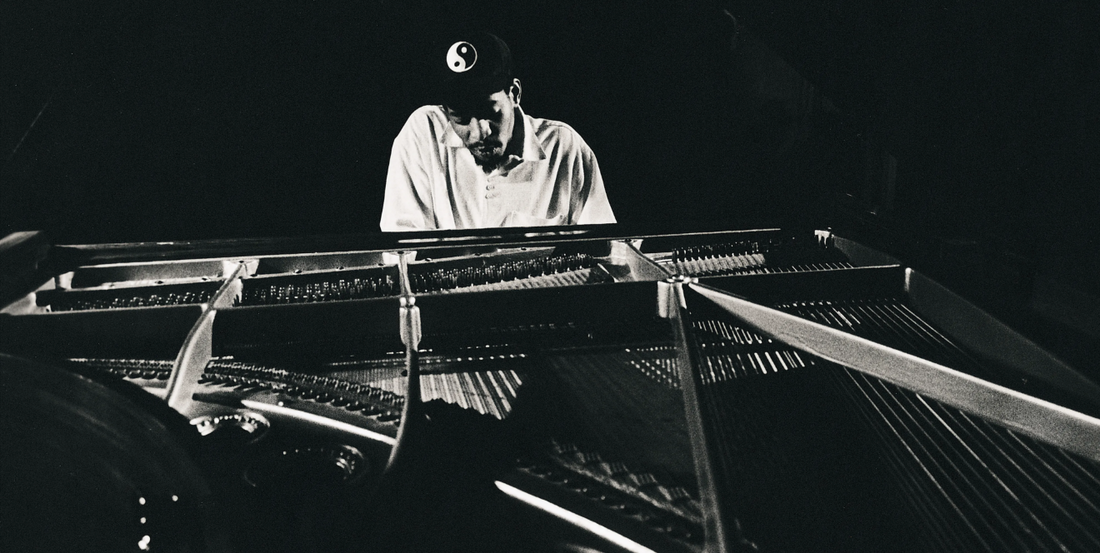
Genes and Spirits - The Enduring Legacy of Moses Taiwa Molelekwa
Share
Let’s talk about someone whose music still lingers in your chest long after the last note has played — Moses Taiwa Molelekwa. If you’ve never heard that name before, you’re in for a journey. And if you have, then you already know we’re about to tap into something deeply spiritual.
Molelekwa wasn’t just a jazz pianist. He was a storyteller. A sonic architect. A bridge between generations of South African jazz, traditional African sounds, and global influences like Herbie Hancock and McCoy Tyner but with a twist that was all his own. And at the center of that expression is his seminal vinyl album, Genes and Spirits a project that feels like a conversation between the ancestors and the future.
Who Was Moses Taiwa Molelekwa?
Born in 1973 in Tembisa, a township in the East Rand of Johannesburg, Moses Taiwa Molelekwa was a prodigy raised in the heat of political turmoil, cultural resistance, and rich musical heritage. His father was a jazz musician, so the sound of upright bass and dusty pianos filled the walls of his childhood home. He came of age during a time when jazz wasn’t just music it was language, protest, identity.
He started playing professionally while still a teenager, eventually cutting his teeth in bands led by South African greats like Miriam Makeba, Jonas Gwangwa, and Hugh Masekela. But by the time he released his first solo project, Finding One’s Self in 1995, it was clear that Molelekwa wasn’t content to stay in anyone’s shadow. He was going to redefine what South African jazz could be.
What Made His Sound So Unique?
Now, if you’ve ever listened to Molelekwa, you know it’s hard to box his music in. It feels like jazz, sure — but also like classical, mbaqanga, kwaito, and even spiritual gospel. He brought the township into the concert hall. His left hand carried the rhythm of the streets; his right hand floated like dreams.
There was also an emotional honesty in his playing that set him apart. It was as if he was channeling something beyond himself — you could feel joy, struggle, longing, and healing all in a single phrase.
Some say he was our John Coltrane with a piano. Others say he was the voice of a generation that was free but still searching.
The Masterpiece: Genes and Spirits
Let’s talk about Genes and Spirits the 2000 album that many consider his magnum opus. If you can get your hands on the vinyl, do it. This is the kind of record that sounds better with every crackle and pop from the needle. It’s more than music it’s a spiritual experience.
From the moment you drop the needle, you're invited into a soundscape that blends jazz with African indigenous rhythms, electronic elements, and poetic interludes. Molelekwa wasn’t just composing he was painting. And every track carries a story.
Standouts like “Spirits of Tembisa” and “Mountain Shade” are layered, haunting, and full of life. There’s a track featuring Brazilian vocalist Flora Purim that feels like a meeting of two ancient souls across oceans. It’s Afro-Brazilian, it’s spiritual, it’s modern it’s everything.
And the title itself? Genes and Spirits a nod to both ancestry and evolution. Molelekwa understood he was standing on the shoulders of giants, but he also knew he was carving his own path. You feel that duality in every note.
A Life Cut Tragically Short
In 2001, just a year after Genes and Spirits was released, the jazz world was shaken by news of Molelekwa’s sudden and tragic passing at only 27 years old. The loss was felt deeply, not just in South Africa but across the global music community. We didn’t just lose a pianist. We lost a visionary. A prophet. A musical alchemist.
Why He Still Matters Today
There’s a reason we’re still talking about Molelekwa more than two decades later. His music speaks to the soul of a people and the heart of a country still learning how to heal. It’s deeply African, unmistakably South African, yet universally resonant. In an era where algorithms dictate taste, Molelekwa reminds us of the power of soul — the kind you can’t fake.
Whether you’re a crate-digger, a jazz head, or someone just beginning to explore South African music, Genes and Spirits is essential listening. It’s an album that rewards slow listening and deep feeling. And once you’ve heard it, trust me — it never leaves you.
So go on. Light a candle. Pour a glass. Put Genes and Spirits on the turntable and let the spirits move through the room. You’re not just listening to music. You’re stepping into the world of Taiwa a place where jazz meets ritual, memory meets melody, and the soul speaks loudest when the music goes quiet.
Rest in power, Moses Taiwa Molelekwa. Your genes and spirits live on.





